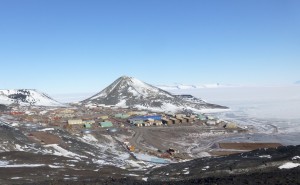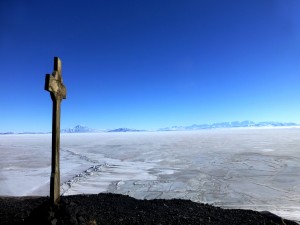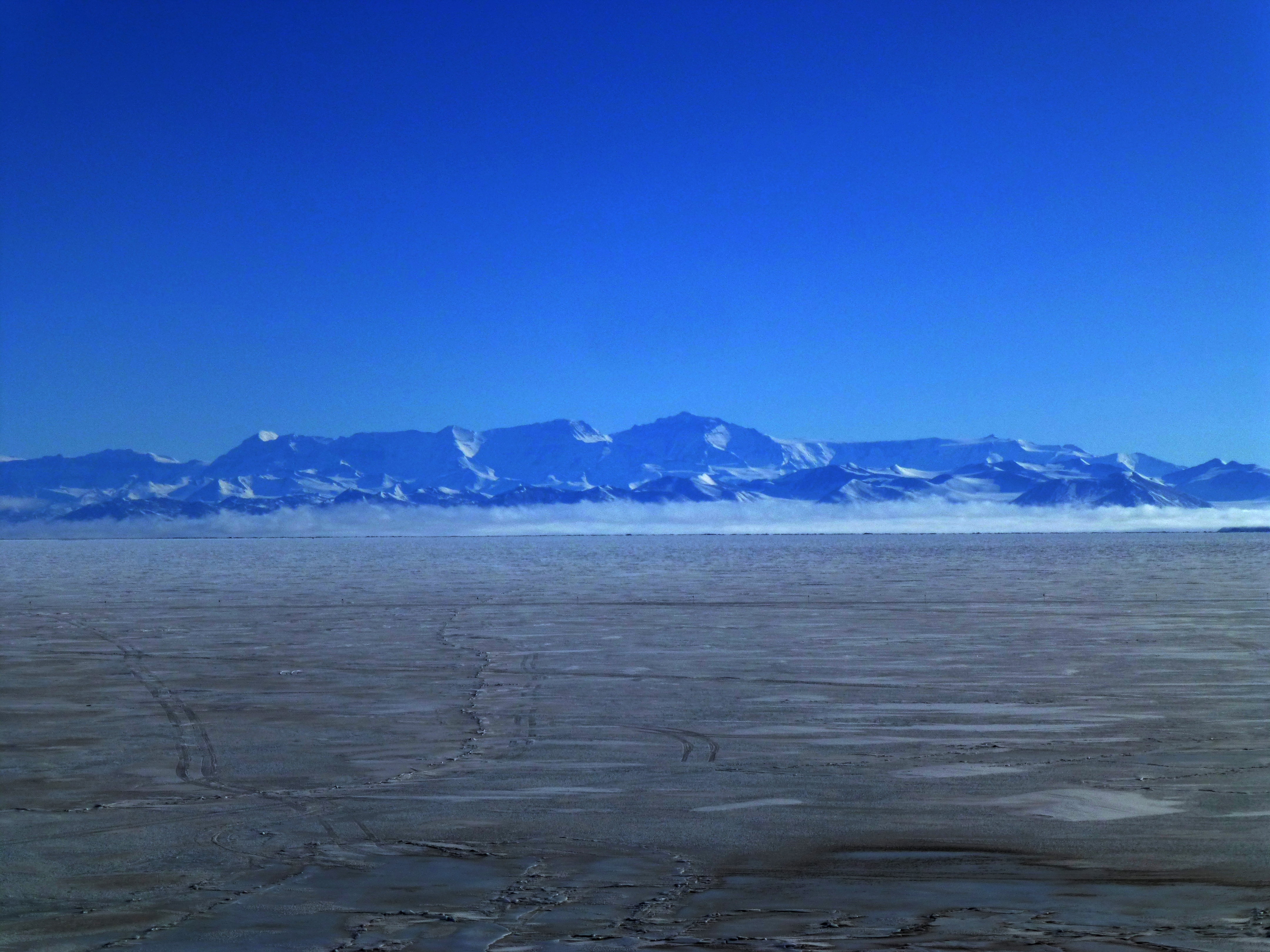Although we have yet to begin our survey, these first few days in McMurdo have been quite busy. All scientists must go through a bunch of training/briefings that pretty much cover what not to do and how to survive while in McMurdo. During our (thankfully) indoor three-hour Field Safety & Training (FST) session held in the Science Support Center (SSC), we got acquainted with the contents of a survival bag, which, should our team get stranded on the barren ice, provides enough food, shelter, and some reading material until rescue.
The housing situation in McMurdo is dorm-style. I have a roommate (it happens to be his eighteenth season in Antarctica), and share a bathroom with two others who live next door. Each dorm has a resident assistant, a lounge, and if you are lucky, a library.

Yesterday I went for a walk to Discovery Hut – a memorial for Antarctic explorer George Vince who fell into McMurdo Sound in 1904 and died was erected here – and along the ridge on a loose path of volcanic rock known as Hut Point Trail. I was practically racing up the hill as I forgot to bring my neck gator and the wind here is incredibly cutting.

Since Mactown is populated with many scientists working on a variety of projects across disciplines in atmospheric science, ecology and oceanography, to name a few, it is not surprising that there are talks held twice a week. Yesterday I attended a talk focusing on paleomagnetics given by professor Lisa Tauxe of Scripps, UC-San Diego. I learned why we study the earth’s magnetic field, why it is so tricky to do so, and the probability that our planet is headed for a total field reduction (!) or reversal.
![Volcanic rock on Hut Point Trail. [My fingertip for scale].](https://sites.coloradocollege.edu/blockfeatures/files/2016/11/rock_hut_trail-300x225.jpg)
Delays are simply a part of life on the ice; planes break down, storms are fierce and the weather is hard to predict. Though I have spent a decent amount of time at the airfield, I actually have not heard or seen any planes take off or land. Hopefully, we are able to install the IcePod on Saturday and begin flying sometime next week!

Hey, there, Alec!! Great posts. Just think how your blood will stir when you DO hear the Hercs arrive; begin to come and go. It’s good for us blog-readers that you aren’t on the ” night ” shift, yet. Say ‘hi’ to the crew for me.
Hi, Alec. I’m a friend of your mom’s and just love reading your blog. I’m learning alot but also not understanding it all. That’s OK. Congratulations of having this remarkable experience. Savor every moment of it—and keep writing!
Thanks, Susan!